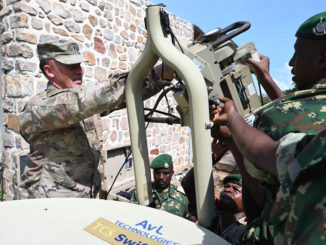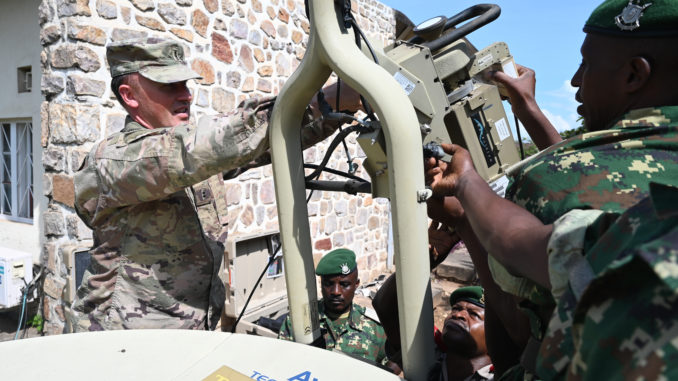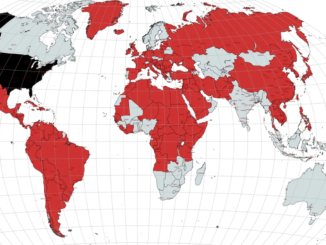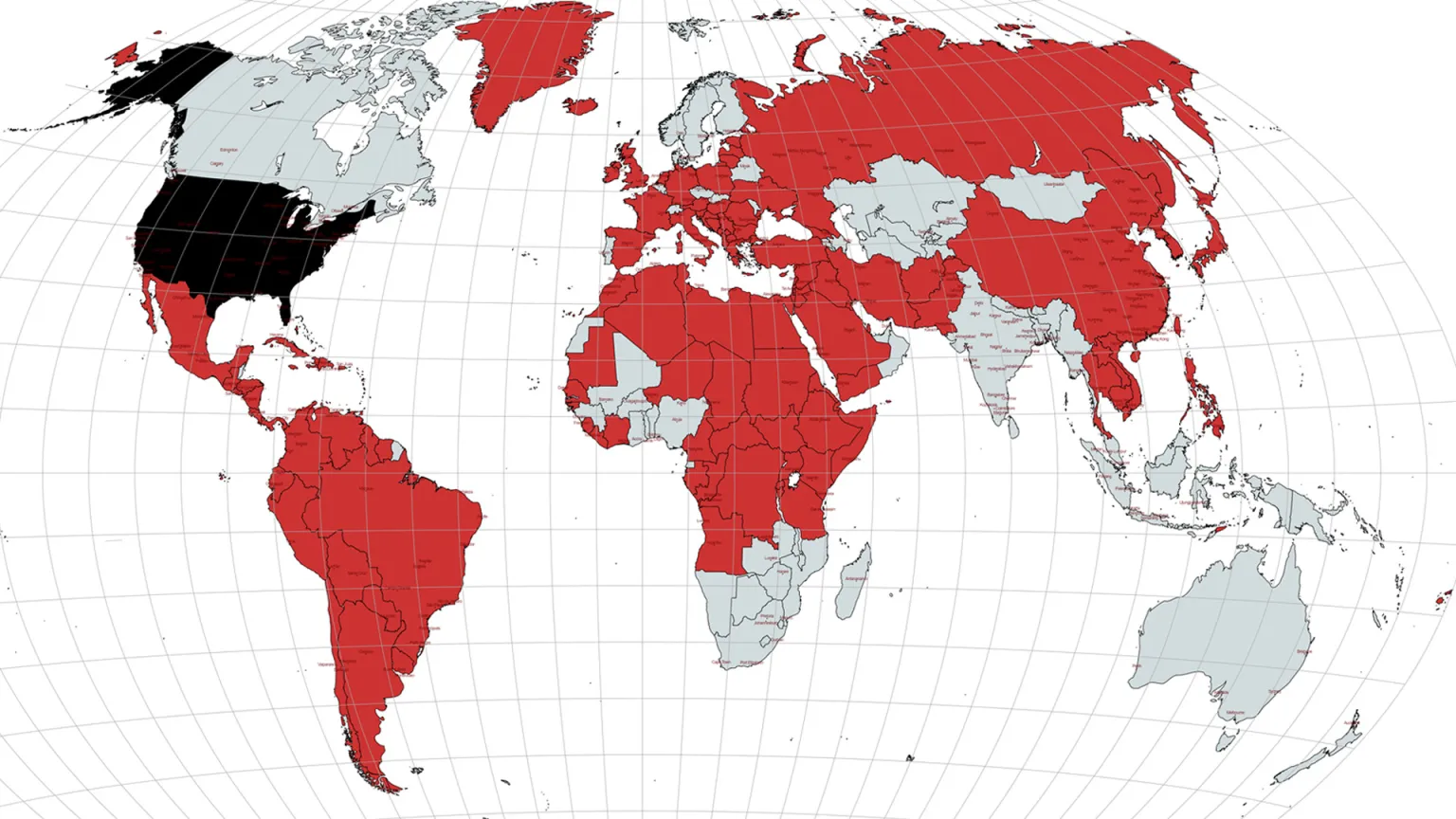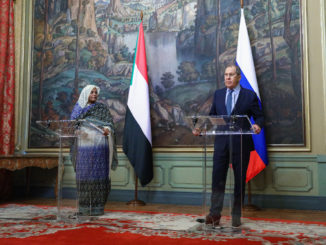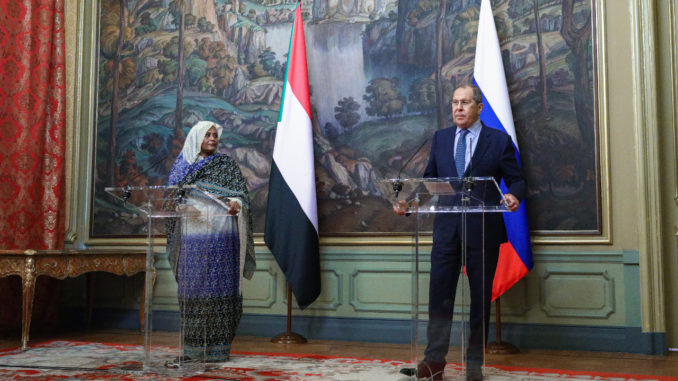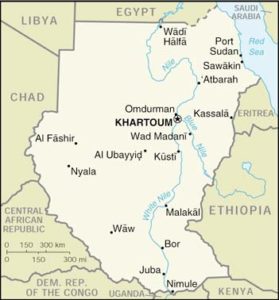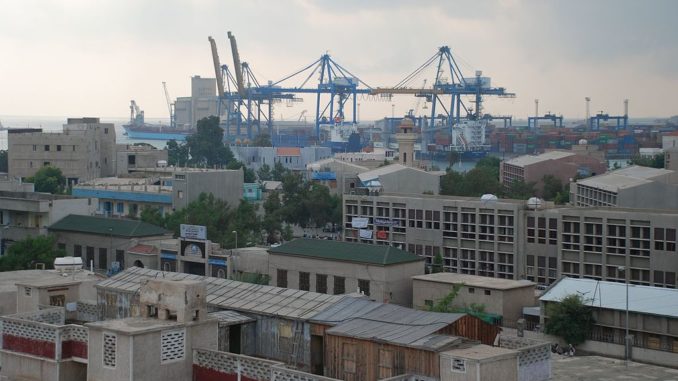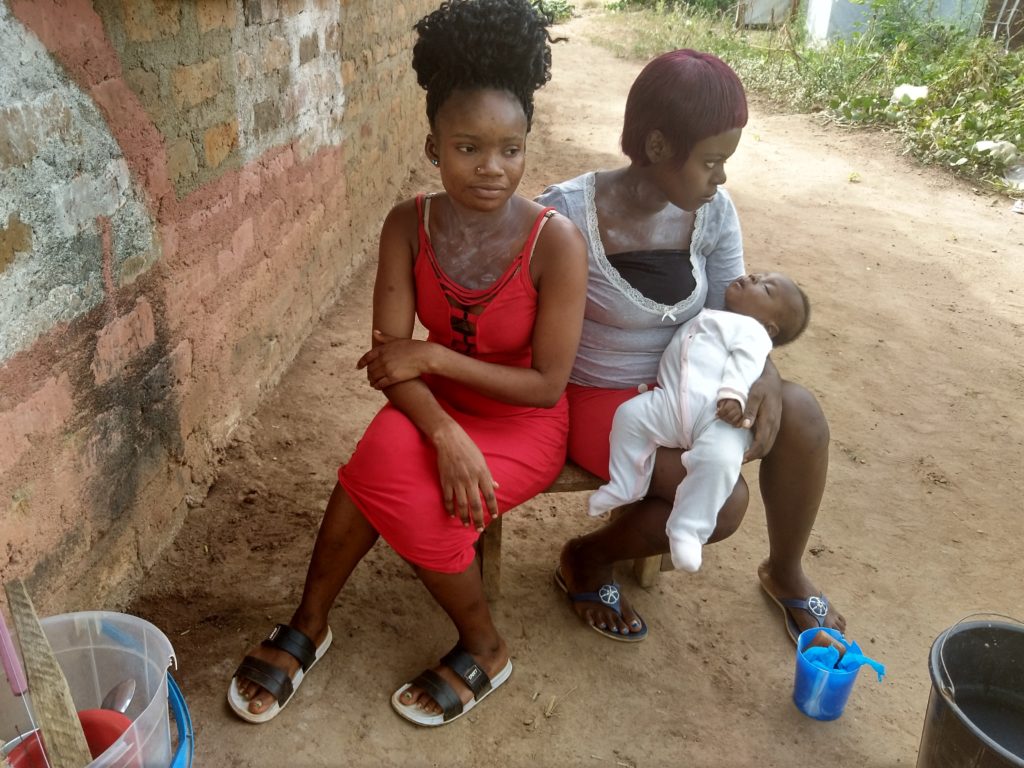
MAMFE, Cameroon—One Saturday morning in March 2021, 17-year-old Beatrice* and 19-year-old Patience* stepped out of a single-room apartment they shared to buy food near the Adagom refugee settlement in Nigeria’s southeastern Cross River State.
That’s when a young man they knew as “Mr. Patrick” approached them.
He asked the teenagers if they were interested in moving to the United States to work as caregivers for a monthly salary.
The two wasted no time in accepting the offer, which came with the condition that they would have to work in a bar in Cameroon, their home country, for at least a year to earn enough to make the journey.
“We immediately began to pack our bags and, after two days, we left for Cameroon,” Beatrice, now 19, said. “We were excited to hear that our stay in Cameroon was temporary and, after a year, we would be traveling to America.”
A little over three years ago, both women, who used to live close to each other, fled their homes in the southwestern Cameroonian town of Akwaya after soldiers stormed their compounds and began to burn houses as the war between English-speaking separatists and government forces in Cameroon’s Anglophone regions intensified. After spending days struggling through thick forests and grasslands, they arrived in Nigeria in November 2019, quickly seeking refuge in the Adagom refugee settlement, where about 5,000 Cameroonians now live. The site is on the outskirts of Ogoja town in Nigeria’s southeastern Cross River State.
For the two days this reporter spoke with the petite women, they were dressed in the same outfit: Blue jean trousers and faded t-shirts. They also appeared emaciated.
According to sources this reporter interviewed, trafficking of adults and children has become rampant as a war rages in Cameroon between the Francophone government and Anglophone forces.
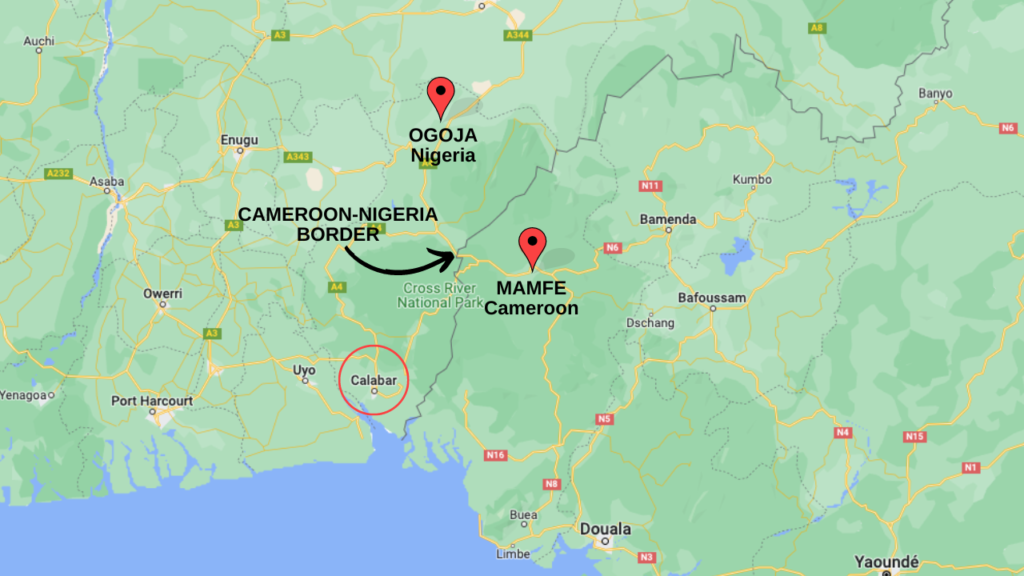
‘We Just Had to Leave’
Both women fled Cameroon on their own, leaving behind relatives, some of whom later fled to Internally Displaced Persons (IDP) camps in Cameroon’s southwest and to other refugee settlements in southeastern Nigeria.
An Emergency Food Security Assessment that the United Nations conducted a year ago found more than 80 percent of Cameroonian households in refugee settlements and those in host communities are “severely or moderately food insecure.” Three in four refugees may be engaging in child labor and survival sex, according to the UN.
Beatrice and Patience, who spent three years at Adagom on a $2-per-day allowance they earned, jumped at the chance of paid jobs in Cameroon and an eventual trip to the United States.
“At Adagom, we only earned money during planting and harvesting seasons and, once these seasons are over, we go back to begging for survival,” Beatrice said. “When we heard there was something better waiting for us outside Nigeria, we just had to leave.”
Beatrice and Patience had no time to tell anyone they were going.
They arrived in the southwestern Cameroonian town of Mamfe alongside Mr. Patrick, who drove them in his red Volkswagen Passat car. That is when the women said they met a couple of other girls from the same refugee settlement in Nigeria at a bar where they quickly began to work as waiters. Later, they labored as cooks when a restaurant was added to the bar, which was run by three young men, including Mr. Patrick himself, according to the women.
“Behind the bar is a three-bedroom apartment, where everyone who worked there lived,” Patience said. “At some point it was only us (Beatrice and Patience), who remained as workers at the bar. The other two girls we met there were taken away from the apartment one morning.”
Less than a week after they arrived, each of the three men began to make advances at them, demanding sex and threatening to lie to Cameroonian authorities that the teenagers worked for the Ambazonia Defense Forces (ADF) one of the two biggest armed English-speaking separatist groups.
“They said if we didn’t do what they asked us to do, they’d make our lives miserable,” Patience said. “We had to choose between doing what they wanted or having our lives turned upside down.”
Fearing that they could lose everything that was offered to them and even end up in jail, they gave in. Within weeks, the teenagers were pregnant. But after they gave birth to two boys in February, the traffickers took away their babies. They told the women that they needed to prepare for their trip to the United States and that U.S. authorities wouldn’t admit them if they went with children.
But the trip never happened. Instead, the bar closed in April and its owners fled with the babies.
“They sent us to the market one afternoon to buy baby toiletries and when we returned, we found that both the bar and our apartment had been locked,” Patience said. “The men had left with our children.”
Not having anywhere to stay, a Mamfe trader whom Beatrice and Patience often bought baby toiletries from took both of them into her home, where they remain for now.
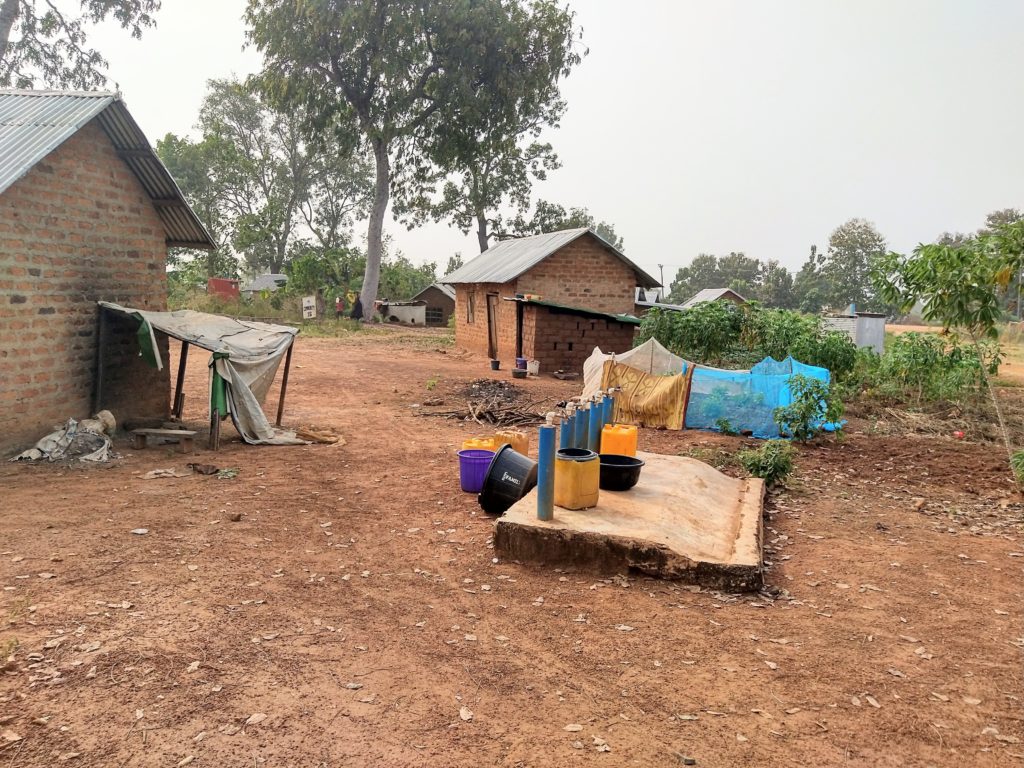
‘No Mother Can Rest Until She Finds Her Child’
The women have solicited help from local activists and a Nigerian NGO to find their babies.
“We reported the incident to the police in Mamfe but haven’t heard anything positive from them since then,” Beatrice said. “We also informed [local] pastors and human rights activists, and they’ve been going ‘round the [southwest] area, asking people if they know anything about the men who took the children.”
A senior police officer, who was unauthorized to speak on the matter, told Toward Freedom human trafficking is growing in the city and traffickers are hard to track.
“They receive protection from armed groups,” the officer said. These groups control certain areas in the southwest. “[The police] isn’t equipped enough to engage these elements.”
In Nigeria’s Cross River State, from where Beatrice and Patience were trafficked, authorities explained policing in Adagom is difficult because of its distance from the state’s capital, Calabar, about 304 kilometers (188 miles) south of Adagom.
“Things can only change if funding improves,” said Godwin Eyake, who heads the Cross River State command of Nigeria’s National Agency for the Prohibition of Trafficking in Persons (NAPTIP).
A local NGO is helping Beatrice and Patience find their sons by visiting orphanages and writing advertisements.
“It’s hard when you are not sure where the babies were taken to,” said Salome Gambo, a researcher at human-rights group Caprecon Development and Peace Initiative. “We are doing what we are doing just in case it happened that the children were trafficked to Nigeria.”
Gambo admitted recovering the children will be difficult.
However, for the mothers of the babies, there’ll be no stop in their search.
“We will not rest until we find our children,” Patience said. “No mother can rest until she finds her child.”
*Names have been changed
Philip Obaji, Jr., is a journalist based in Nigeria. He won the Future Awards Africa Prize in Education in 2014, and the Future Awards Africa Prize for Young Person of the Year in 2015. Follow him on Twitter at @PhilipObaji.

